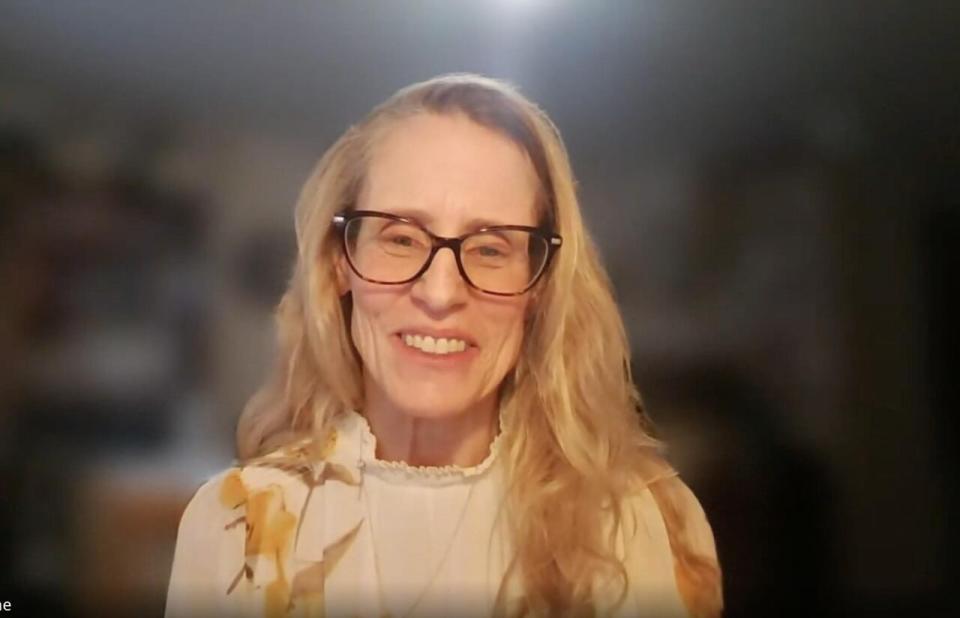Connecting Albertans to a culturally appropriate health routine

If you peek into an app store, you'll see a bewildering buffet of health and fitness apps.
Thney include calorie and step counters, glute and ab blasters, virtual coaches and 30-day programs that guarantee results.
But do these programs work? A team of Alberta-based researchers is trying to find out with a study looking into whether a web-based wellness platform can change health behaviours.
The researchers also want to know what impact these apps have on new Canadians and people who live in rural Alberta. It could have a significant impact because healthy behaviours may reduce the risk of developing chronic diseases, they say.
The researchers are is still recruiting participants, while some have already gone through the four-month program.
Lorna Guihawan, 49, took part in the study because of concerns around her weight gain and unhealthy eating habits. She works as a nurse in Edmonton and became a Canadian citizen five years ago after emigrating from the Philippines.
"First and foremost because I was gaining weight significantly, so I was bordering between overweight and obese, so that's quite alarming," she said of her decision to join the study.
Guihawan used a web-based wellness platform for four months. It offers tools for mental well-being, physical activity and nutrition. Participants were given an activity tracker and a smart scale. Some were offered a weekly one-hour virtual chat with a registered dietitian, an exercise specialist and a mental health professional.
The principal investigator of the study says participants will come from rural and urban Alberta, some will be newer Canadians and all will have challenges with maintaining a healthy weight.
Carla Prado is a professor in human nutrition at the University of Alberta and is the principal investigator for the study.
She says participants will be offered online support and will use the platform to empower them to take control over their health and learn behavioural changes related to nutrition, physical activity and also stress management.

Carlo Prado is a professor in human nutrition at the University of Alberta. She's the lead investigator for a study looking into the efficacy of online platforms. (CBC)
People living in rural Alberta were included to see if there are any differences compared to people living in larger centres. Immigrants were included to add their views on what may be missing in web-based wellness apps.
Prado says the main goal for the participants is not to lose weight but to make better choices around nutrition.
Guihawan says that while losing two kilograms during the study was a great result, it's not the main takeaway from her experience.
She says what really stuck with her is the "mindful eating" that she practised.
"When you eat, focus on chewing and tasting your foods. In that way you won't overeat," she said.
Guihawan also says she was committed to doing the exercises and choosing the right foods.
Diverse perspectives, inclusive approach
Guihawan is recommending some changes to web-based health and fitness platforms to better reflect Canada's diversity, from instructors to food choices and recipes.
One of the study's researchers agrees.

Sabina Valentine is an associate lecturer at the University of Alberta and a registered dietitian. She says it's important to take cultural differences into account and adapt digital health programs. (CBC)
"Our study will provide information on how we can adapt those digital health programs to make them more culturally responsive," said Sabina Valentine, a registered dietitian and an associate lecturer and PhD student at the University of Alberta.
She says one of the study's participants didn't know what broccoli was because it wasn't something she had in her native country.
Valentine says that type of input could change the way new and existing apps are developed.
"Twenty-three per cent of our population here in Alberta consists of immigrants. Twent-eight per cent of Albertans identify as coming from a different cultural group."
"It's important to address the cultural responsiveness of a really good app that addresses different aspects of health."
Guihawan says even though her participation in the study has ended, she's trying to adopt some of the positive changes that she learned over the past four months.
"At least now I'm not rapidly increasing weight because I keep an eye on everything."
Bryan Labby is an enterprise reporter with CBC Calgary. If you have a good story idea or tip, you can reach him at bryan.labby@cbc.ca or on Twitter at @CBCBryan.

